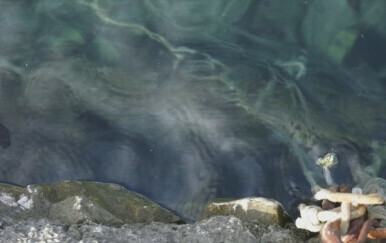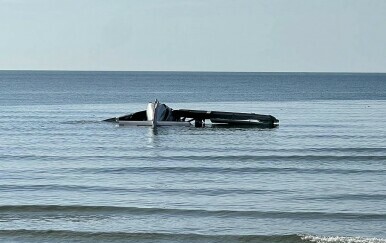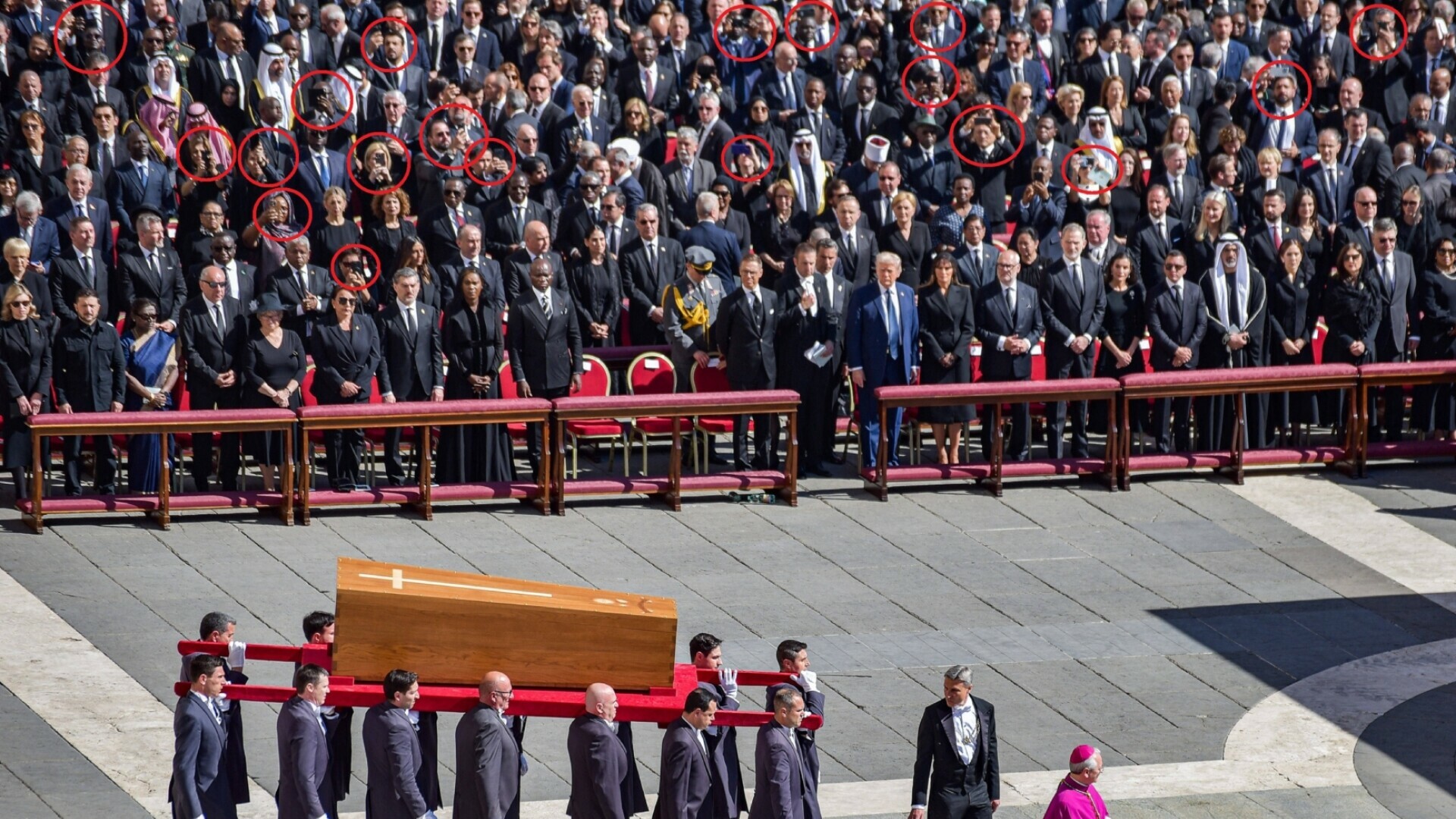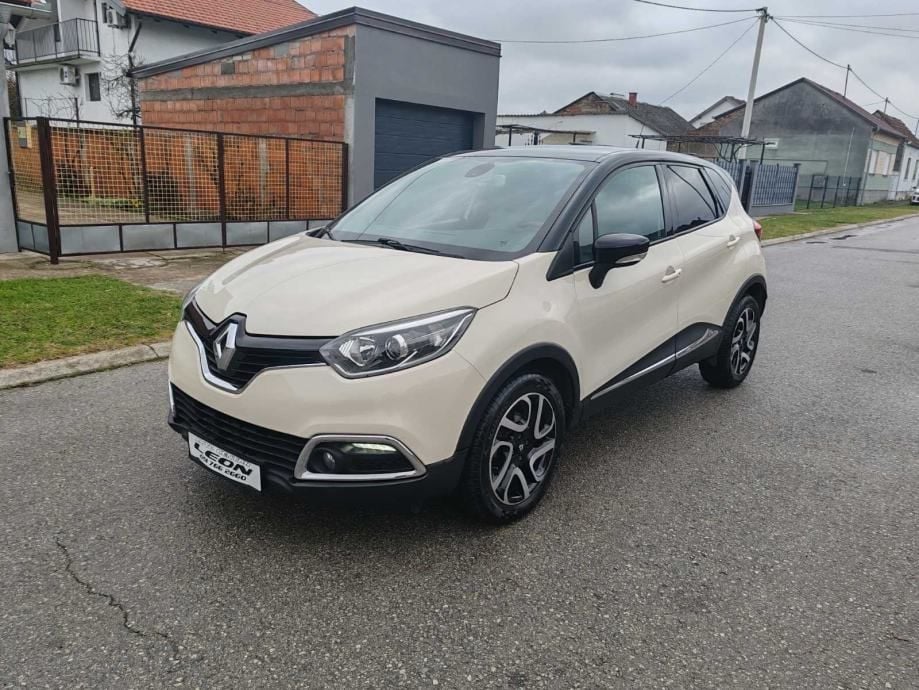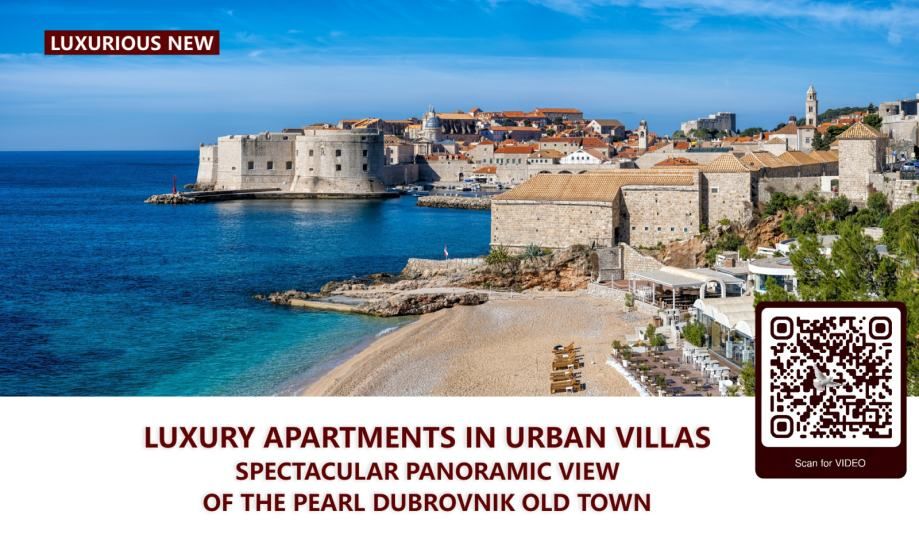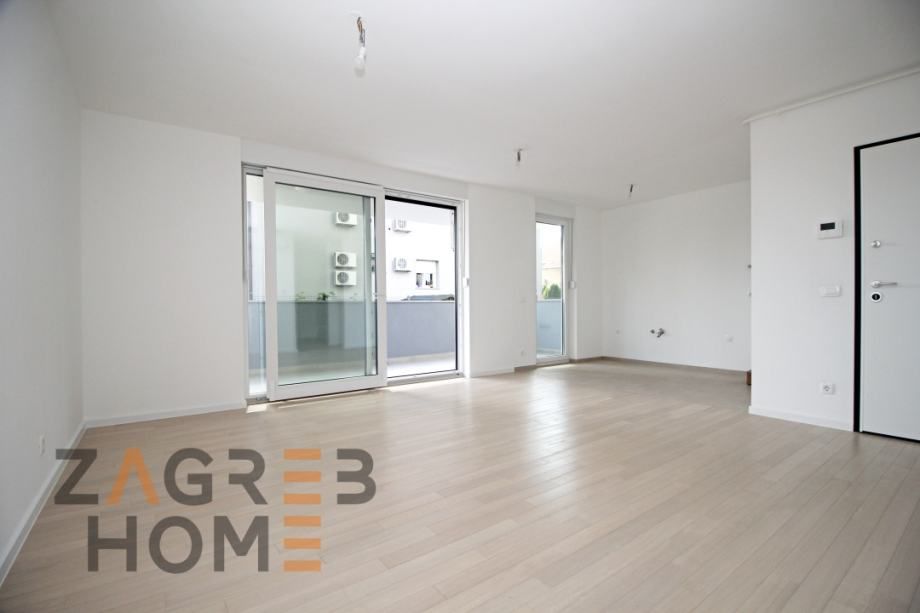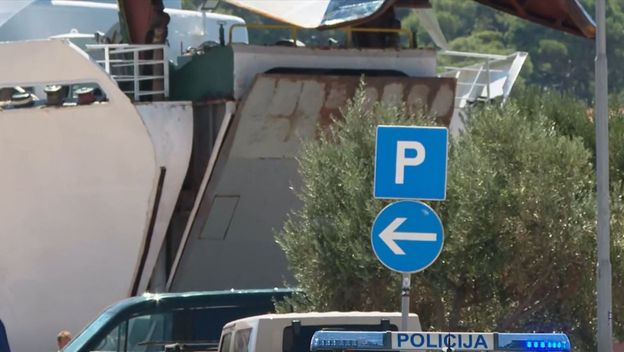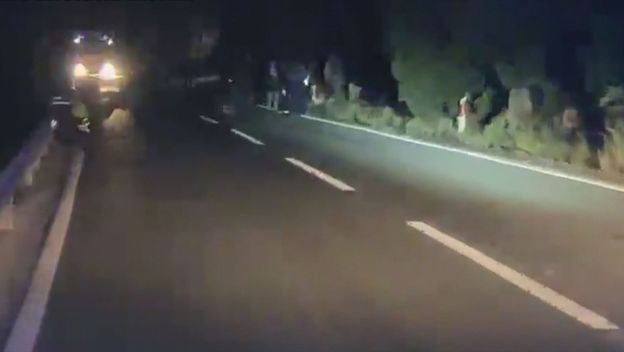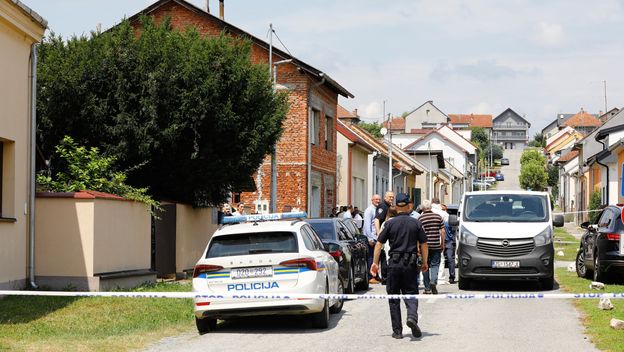Let us start with important COVID restrictions. On your tour to Croatia you should wear a protective mask while being indoors in public spaces, and in open spaces where it is not possible to maintain s physical distance of 1,5 m.
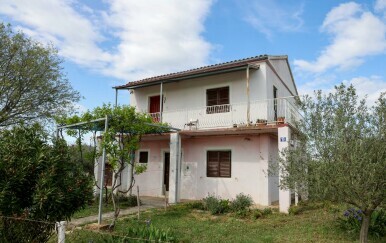 zločin u dalmaciji
Muž ubio ženu pa počinio samoubojstvo: "Rekao je da ne želi živjeti bez nje kad ona umre"
zločin u dalmaciji
Muž ubio ženu pa počinio samoubojstvo: "Rekao je da ne želi živjeti bez nje kad ona umre"
 Važan je oprez
Već troje ljudi završilo u bolnici, pronađena i mrtva krava od 500 kila: "Ako se to dogodi, u roku od sat vremena morate biti u bolnici"
Važan je oprez
Već troje ljudi završilo u bolnici, pronađena i mrtva krava od 500 kila: "Ako se to dogodi, u roku od sat vremena morate biti u bolnici"
 Zatvorena ceremonija
FOTO Vatikan objavio fotografije polaganja lijesa pape Franje
Zatvorena ceremonija
FOTO Vatikan objavio fotografije polaganja lijesa pape Franje
Cafes and restaurants are open until 23 hours. In restaurants, you can sit indoors, but cafes can only serve guests on terraces.
If you are planning to visit cultural manifestations or performances you should know that organizers of such events are obligated to collect and keep personal information on visitors for 14 days so you might be asked to provide your name and phone number.
You can read more about how to stay safe in Croatia and what measures are in force on this link
Keep reading for information about crossing the border.
Pročitajte i ovo
 Sve na jednom mjestu
Planirate putovanje u Hrvatsku? Pogledajte koja su pravila za prelazak granice trenutno na snazi i što vam je sve potrebno
Sve na jednom mjestu
Planirate putovanje u Hrvatsku? Pogledajte koja su pravila za prelazak granice trenutno na snazi i što vam je sve potrebno
Crossing the border
Visitors coming from other European Union member states which have implemented a digital vaccine passport system can enter Croatia without delays. For now, besides Croatia, the certificate is being accepted in Bulgaria, the Czech Republic, Denmark, Germany, Greece, and Poland. The so-called COVID passport comes in the form of a QR code, which can be stored on a cell phone or printed out on paper.
To make sure your time at the border crossing will be the shortest possible you can fill out the form on the EnterCroatia platform.
Passengers traveling to the Republic of Croatia from an EU / EEA member state
Passengers coming directly from the countries and/or regions of the European Union, i.e. countries and/or regions of the Schengen Area and Schengen associated countries, and who are currently in the so-called green list of the European Centre for Disease Prevention and Control, regardless of their citizenship, will be allowed entry into the Republic of Croatia under the same conditions as before the onset of the COVID-19 disease if they show no signs of disease and they have not been in close contact with an infected person.
If the aforementioned persons transited to the border crossing points of the Republic of Croatia through other countries/regions without delay, at the border crossing point they should prove that they did not stay in transit areas, and in that case, they will not be required to have proof of testing, a certificate of vaccination against SARS-CoV-2 disease, proof of recovery, nor will they have to stay in self-isolation.
Pročitajte i ovo
 Digitalne potvrde
Kako do COVID potvrde ako ste se cijepili, ali niste upisani u registar? Ministarstvo objasnilo što tada trebate učiniti
Digitalne potvrde
Kako do COVID potvrde ako ste se cijepili, ali niste upisani u registar? Ministarstvo objasnilo što tada trebate učiniti
Graphic representation of countries by color according to the risk of the COVID-19 disease can be found on the website of the European Centre for Disease Prevention and Control (ECDC)
All other passengers who come to the Republic of Croatia from EU / EEA member states/regions, and which are currently not on the so-called green list of the European Centre for Disease Prevention and Control, must present one of the following documents:
- negative PCR test or rapid antigen test - RAT* on SARS-CoV-2, where the RAT test must be listed in the Common list of rapid antigen tests recognized by the Member States of the European Union, published by the European Commission. If the RAT test findings were made abroad, the manufacturer and/or the commercial name of the test must be visible and the test must be issued by a health institution/laboratory and signed/confirmed by a doctor.
If otherwise, it will not be accepted as credible for entering the Republic of Croatia. The results of the above tests must not be older than 48 hours (counting from the time of taking the swab to arriving at the border crossing point)
- vaccination certificate for persons who received a second dose of COVID-19 vaccine more than 14 days prior. Exceptionally, in the case of a vaccine received in a single dose, a certificate of receipt of a single dose if the dose was received more than 14 days before crossing the state border;
- If a person has recovered COVID-19 in the past 180 days and has a medical certificate and has been vaccinated with at least one dose of vaccine after recovery, the exemption from presenting a negative PCR or rapid antigen test - RAT* or self-isolation is extended until six (6) months after vaccination;
- presentation of a positive PCR or rapid antigen test*, confirming that the holder recovered from the SARS-CoV-2 virus infection, which was performed in the previous 180 days, and older than 11 days from the date of arrival at the border crossing point or upon presentation of a certificate of recovery issued by a physician;
- or perform PCR testing or rapid antigen testing* on SARS-CoV-2 immediately upon arrival in the Republic of Croatia (at their own expense), with the obligation to stay in self-isolation until the arrival of a negative test result. If testing cannot be performed, a measure of self-isolation is determined for a period of ten (10) days.
Same documents need to be provided by Citizens of EU Member States (including Croatian citizens), i.e. Schengen Member States and Schengen Associated States, as well as members of their families and third-country nationals who are long-term residents under Council Directive 2003/109/EC of 25 November 2003 concerning the status of third-country nationals who are long-term residents and persons entitled to reside under other EU directives or national law or who have national long-term visas coming from third countries.
Pročitajte i ovo
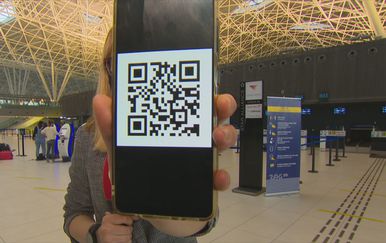 Zadržavanje od 20-ak sekundi
Božinović na Bregani pokazao kako se prelazi granica s COVID potvrdom i otkrio koliko je ljudi s njom ušlo u zemlju
Zadržavanje od 20-ak sekundi
Božinović na Bregani pokazao kako se prelazi granica s COVID potvrdom i otkrio koliko je ljudi s njom ušlo u zemlju
Third-country nationals
Third-country nationals who are not family members of citizens of the Schengen Member States and the Schengen Associated States nor are long-term residents under Council Directive 2003/109/EC of 25 November 2003 concerning the status of third-country nationals who are long-term residents and persons entitled to reside under other EU directives or national law or who have national long-term visas, apart from persons referred to in point 1 of this Decision will be granted entry in the Republic of Croatia only in cases of necessary travel.
Exceptions to the above-mentioned necessary travel are the following categories:
- healthcare workers, health researchers, and caregivers for the elderly;
- frontier workers (as well as e.g. athletes as stated in the exceptions for passengers within the EU / EEA);
- workers in the transport sector;
- diplomats, staff of international organizations and persons invited by international organizations and whose physical presence is necessary for the functioning of those organizations, military personnel, and police officers, as well as humanitarian and civil protection personnel in the performance of their duties;
passengers in transit, with the obligation to leave the Republic of Croatia within 12 hours from entering;
- persons traveling for study purposes;
- seafarers - if they intend to stay in the Republic of Croatia for longer than 12 hours; persons who travel for tourist reasons and have a certificate of paid accommodation in a hotel, camp, private renter or rented vessel and other forms of tourist accommodation or are owners of houses or vessels; persons traveling for necessary personal / family or business reasons, or who have other economic interest also need to provide documents mentioned above.
You can read more about recommendations and instructions for crossing the state border on this link
 zločin u dalmaciji
zločin u dalmaciji Važan je oprez
Važan je oprez Zatvorena ceremonija
Zatvorena ceremonija






